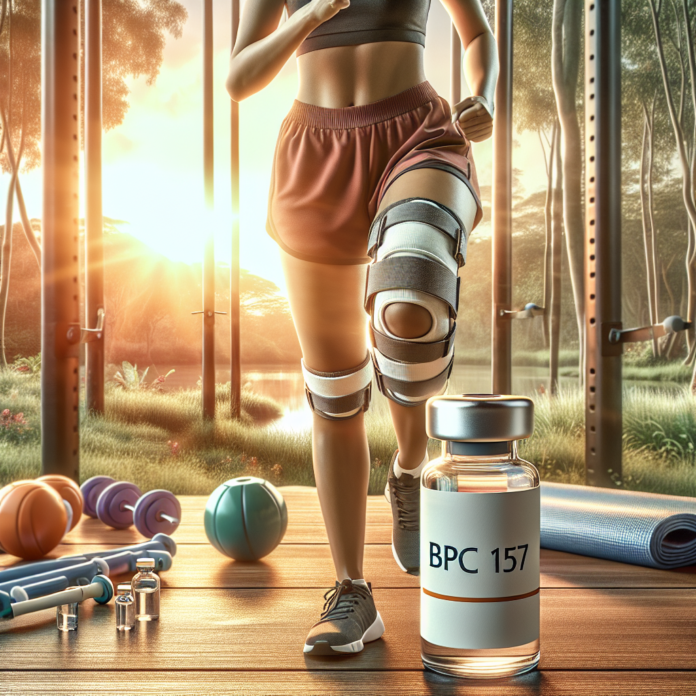If you’ve been grappling with chronic knee pain long after an ACL injury and surgery, you’re not alone. The search for effective treatments that provide relief without additional surgery or heavy medication is ongoing. One emerging topic in this arena is the potential use of peptides like BPC 157. Dr. David Guyer, a renowned orthopedic surgeon specializing in sports medicine, anti-aging, and regenerative medicine, delves into this complex issue. While BPC 157 is recognized for its capacity to aid in the healing of muscles, tendons, and ligaments, could it also offer relief for joint-related issues like arthritis that often accompany ACL injuries? In this blog, we expand on the ideas discussed in Dr. Guyer’s video, exploring the promising yet experimental world of peptide therapy for long-term knee pain management.
The Role of BPC 157 in Injury Recovery
Peptides, particularly BPC 157, are gaining attention for their potential to assist with injuries and chronic pain. Primarily sourced from the stomach lining, BPC 157 is a peptide that has shown promise in healing musculoskeletal injuries. The question at hand is whether this peptide can extend its benefits to chronic knee pain following an ACL injury and surgery.
Understanding ACL Injuries and Arthritis
ACL injuries are notorious for leading to osteoarthritis over time. This can occur even after surgical intervention, which only slightly reduces the risk of developing arthritis. Chronic knee pain, which can persist years after an ACL tear, is often due to the degeneration of joint structures, including articular cartilage and subchondral bone. While BPC 157 has not been conclusively proven to regenerate cartilage or bone in human studies, it does hold potential due to its regenerative properties noted in muscle, tendon, and ligament healing.
Examining the Research
One study, albeit with a limited and flawed design, hinted at the possibility of BPC 157 offering pain relief. In this study, 16 patients with knee pain were injected with BPC 157. While specific diagnoses of knee conditions weren’t detailed, a high percentage of participants reported significant pain improvement. However, this study lacked critical scientific rigor—it wasn’t randomized, it had no control group, and details on participants’ knee conditions were sparse.
Considering BPC 157 for Pain Management
Despite these limitations, this case series raises the question: could BPC 157 assist individuals suffering from chronic knee pain due to past ACL injuries? Theoretical application suggests that subcutaneous injections of BPC 157 near the site of pain could potentially provide relief, offering a non-surgical, non-pharmaceutical option for those seeking alternatives.
Consulting Healthcare Professionals
For individuals considering BPC 157, it’s crucial to consult with a healthcare professional. Peptides, including BPC 157, are regarded as experimental by the FDA, and any decision to use them should be made with professional guidance. Potential users should also discuss the method of administration, as the peptide has been traditionally administered via subcutaneous injection for muscle and tendon healing, with the proximity of the injection site to the injury potentially impacting efficacy.
Benefits and Considerations
- Benefits of BPC 157:
- May aid in healing musculoskeletal injuries.
- Possesses anti-inflammatory properties.
- Potential to alleviate chronic pain.
- Considerations:
- Experimental status by the FDA.
- Requires professional prescription and supervision.
- More research needed, particularly in the context of cartilage and bone regeneration.
Conclusion
Ultimately, chronic knee pain management is a multi-faceted approach that should be tailored to each individual’s needs and medical history. For those dealing with long-term consequences of an ACL injury, it’s vital to explore all treatment avenues in consultation with medical professionals. Peptide therapy like BPC 157, although not a silver bullet, represents an exciting frontier in orthopedic medicine and pain management.
Explore the potential of BPC 157 for chronic knee pain relief post-ACL surgery. Delve into its healing properties, current research, and considerations for use.
